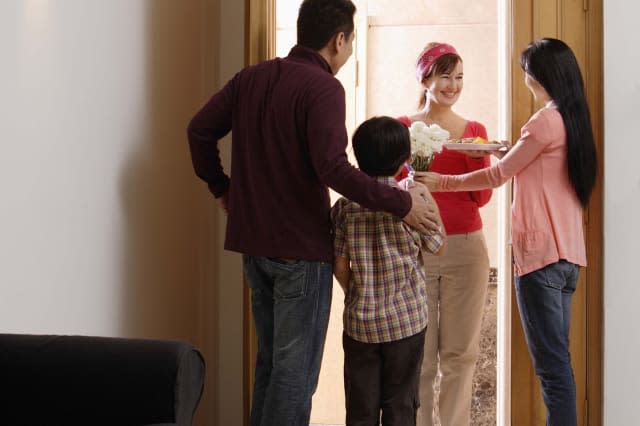Brits make terrible neighbours

We have forgotten how to be good neighbours. A new study revealed that almost one in ten people would be unwilling to do a single favour for people in their area, while 46% would refuse to keep an eye on their neighbour's house while they were away on holiday, and a shocking 32% of people wouldn't even be willing to take a parcel in for a neighbour.
The research, for Anglian Home Improvements, revealed that there were a few things that most of us might stretch to - notably taking out the bins for a neighbour (53%) or lending them a cup of sugar (56%) - but you have to bear in mind that this means 44% of people would stand on the doorstep with a neighbour in front of them asking for something as simple and cheap as a cup of sugar, and refuse to help.
%VIRTUAL-ArticleSidebar-property-guide%
When it comes to the kinds of jobs that involve putting yourself out, the numbers are even more alarming. Only a third would clear snow from a neighbour's path or look after their pet, a fifth would look after their children, and just one in ten would be willing to cook Sunday dinner for the neighbours.
What has happened?
Part of the problem is that just 12% of people say they know their neighbours very well. This is a particular problem in areas where lots of people rent property - as tenants are three times less likely to know their neighbours. Tenants tend to pass through more quickly, so they don't have time to get to know those around them before they move on.
Lack of neighbourliness is also rife in the centre of large cities, where housing tends to be denser and smaller, and so young people stay for a few years before moving out - to something they can afford to buy or somewhere a young family can grow into. Areas with larger detached houses and older people - particularly women over the age of 60 - tend to be more neighbourly.
The researchers claimed that there are some exceptions to the rule. The survey found that Birmingham is home to the UK's most helpful neighbours (where 96% of people would help their neighbours in at least one way). This is followed by Edinburgh (95%), London (94%), Cardiff (93%), Glasgow (93%) and Nottingham (93%).
However, the presence of London in this list is an indication of the flaws in it. The survey asked people whether they would be willing to do any of the neighbourly acts - not whether they had done so. It's easy for a Londoner, who wouldn't be able to spot a single neighbour in a line-up (except the really noisy one upstairs who they hate) to say that in theory if a neighbour ever asked them for a cup of sugar they might agree.
Why does it matter?
In a world where most people live most of their lives online, at work, or through some sort of screen, you could argue that it doesn't really matter - when you have made friends with people all over the globe, is it really the end of the world if you don't know the bad tempered family living next door?
However, neighbourliness is good for us in lots of ways - a report by Oxford University professor Robin Dunbar for the Campaign for Real Ale recently concluded: "Friendship and community are probably the two most important factors influencing our health and wellbeing. Making and maintaining friendships, however, is something that has to be done face-to-face: the digital world is simply no substitute."
Being a decent neighbour is also good for you financially. At the very least, we know that in busy urban areas, where people don't know their neighbours, people are less likely to keep an eye on each other's properties - and so life is easier for opportunist burglars. It doesn't take much to pop round to the neighbours with a cake and an offer to watch their house if they watch yours.
They can also save us a small fortune by not having to pay professionals to do jobs that always used to be done by the neighbours. Getting together with other local pet owners or parents means you can help one another out. Whether you need some last-minute babysitting, or someone to feed fluffy while you're on holiday, you can get it sorted for nothing. For younger people without these sorts of responsibilities, swapping an hour of DIY skills for a home-cooked Sunday lunch could benefit both of you.
Then of course, is the fact that when you get to know your neighbours, you are likely to be more considerate towards them - and vice versa. They may think twice about having a noisy party late at night - or at least invite you or give you enough notice to decide whether to go away. When you come to sell your property, you're in a much better position being able to wax lyrical about how lovely the area is - instead of ticking the box to admit you have had disputes with the neighbours in the past.
But what do you think? Do you know your neighbours, and would you be willing to get to know them if it could save you money? Let us know in the comments





